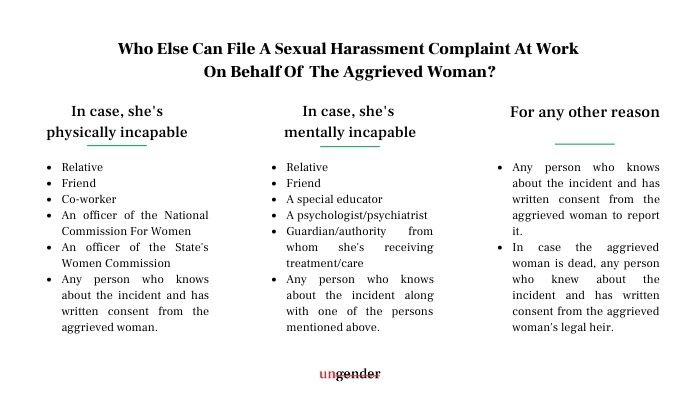POSH FAQ: Can A Woman File An Anonymous Sexual Harassment Complaint At Work?

Written by: Avanti Deshpande
Many women are hesitant to come forward with complaints of sexual harassment at workplaces due to various reasons, such as fear of retaliation from the accused, the employer, other colleagues; stigma, apprehension of not being taken seriously, and so on.
Only Written Complaints Allowed?
Section 9 of the Sexual Harassment of Women at Workplace (Prevention, Prohibition and Redressal) Act, 2013 (the “POSH Act”) clearly states that an aggrieved woman can make a complaint to the Internal Complaints Committee (ICC) or Local Committee as the case may be, in writing. Thus, this provision highlights the written nature of the complaint against sexual harassment.
The POSH Act does not recognize and consequently does not provide for dealing with anonymous complaints of sexual harassment. The Delhi High Court in Manjeet Singh v. Indraprastha Gas Limited 236 (2017) DLT 396 set aside the conclusion of the ICC because the complaint was anonymous.
However, companies as a matter of internal policy may exercise discretion and look into anonymous complaints as far as it is practically possible, but they are not under an obligation to do so. Although anonymous complaints are not provided for under the POSH Act, it is not advisable for companies to ignore them.
Anonymous complaints clearly indicate that the victim is unwilling to come forward and reveal her name. One approach that companies can adopt to tackle this issue is by bringing in the external member of the ICC to speak to the employees so they can gather additional information which can enable the ICC to launch an inquiry.
Can Someone File The Complaint On Behalf Of The Aggrieved Woman?
Section 9 of the POSH Act further provides that in instances where the complainant or aggrieved woman is unable to make a complaint because of her physical or mental condition or incapacity, death or otherwise, her legal heir or “such other person as may be prescribed” may make a complaint under the section.
As per the Sexual Harassment of Women at Workplace (Prevention, Prohibition and Redressal) Rules, 2013 (the “Rules”) lays out a list of persons who can file a complaint on behalf of an aggrieved woman.

There is no easy or straightforward answer regarding anonymous complaints of sexual harassment at work. Companies should, however, know and keep in mind two things – there is no provision in the POSH Act that deals with anonymous complaints and but
Companies should also try and foster an open and safe atmosphere where women are less hesitant to come forward with their complaints and the workforce, in general, is more aware and sensitive and conduct themselves appropriately at the workplace.
About the author: Avanti Deshpande is a penultimate year law student at ILS Law College, Pune. Her main interest areas are human rights, gender laws and international law.
Hear, Here: If you haven’t started on POSH compliance procedures, do so today. Ungender will be able to not only guide you through the process of POSH compliance, they will help you set up the ICC, find an external member, train both your IC and workforce, and more. If you’d like to understand how this will work, just give us a call at +91 9582630056.
Ungender Insights is the product of our learning from advisory work at Ungender. Our team specializes in advising workplaces on workplace diversity and inclusion. Write to us at contact@ungender.in to understand how we can partner with your organization to build a more inclusive workplace.
Read our insights about diversity, legal updates and industry knowledge on workplace inclusion at Ungender Insights. Visit our Blog.
Sign up to stay up-to-date with our free e-mail newsletter.
The above insights are a product of our learning from our advisory work at Ungender. Our Team specialises in advising workplaces on gender centric laws.
or email us at contact@ungender.in




